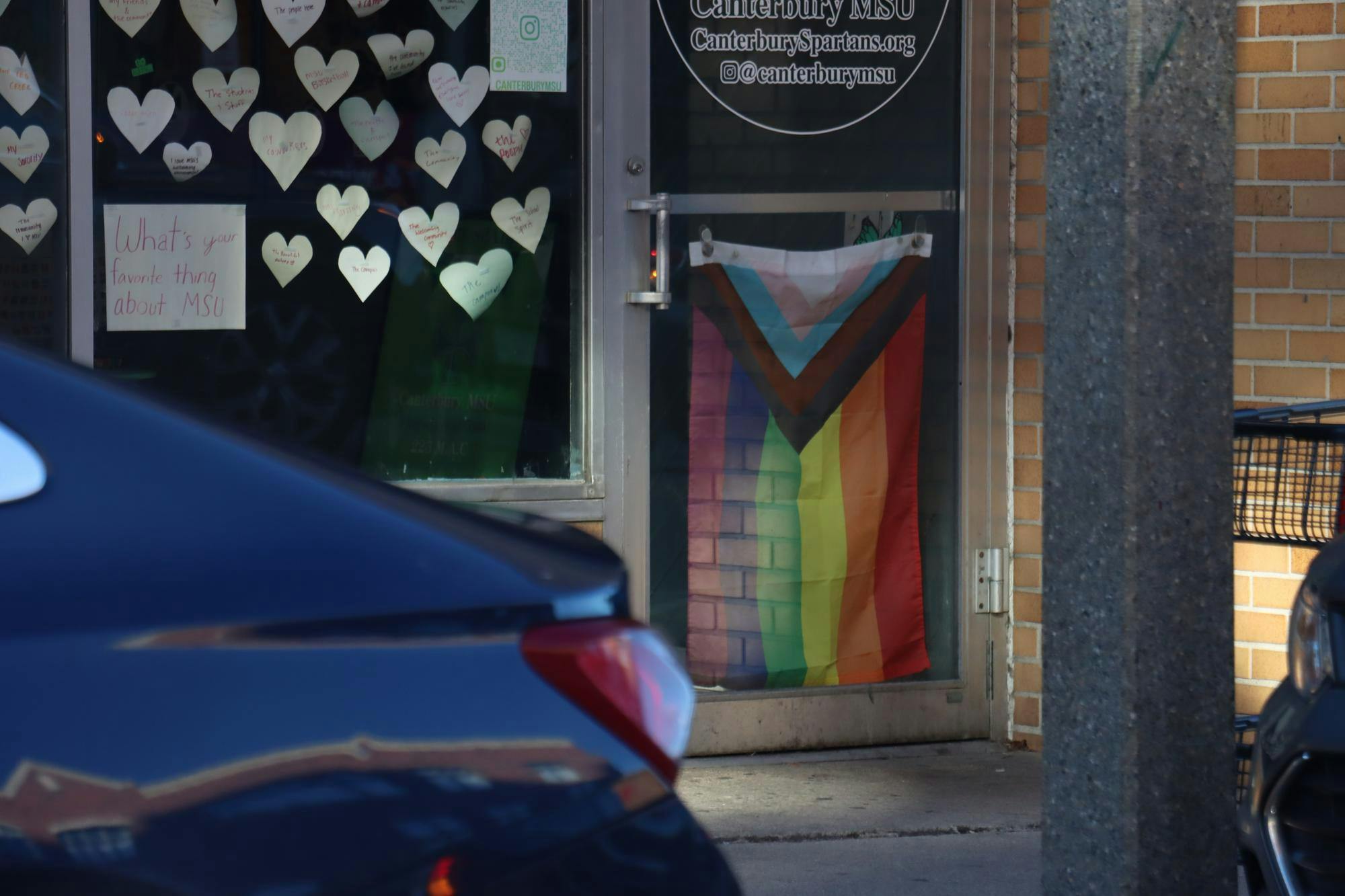In 1972, East Lansing etched its name in history by becoming the first municipality in the nation to enshrine protections against discrimination based on sexual orientation in hiring practices. However, this milestone was a hard-fought battle, according to MSU associate professor of history Dr. Tim Retzloff.
Nestled at the heart of Michigan's sociopolitical landscape since its founding in 1847, Lansing carries a weighty history of activism and political fervor. Among its most vibrant narratives is the story of LGBTQ+ activism.
Retzloff said that Lansing's LGBTQ+ history is marked by celebrations of pride parades and the community found in underground gay bars.
Retzloff's scholarship delves deep into the intersection of LGBTQ+ studies and Michigan's history. Lansing's status as the Michigan capital has long served as a rallying point for activists, both past and present, catalyzing change and progress.
Historically, being gay was not only stigmatized but criminalized in Michigan, said Retzloff.
LGBTQ+ individuals sought solace in hidden corners, finding community in underground bars and clubs, where they could be themselves without fear of oppression, according to Retzloff.
Despite legal barriers, establishments like Stober's, a popular bar in the 1970s, became vital hubs of LGBTQ+ life, even gaining recognition in travel magazines that have dominantly queer audiences as 'must-visit destinations' in Lansing.
Though many of these establishments have since closed, their legacy endures, with new establishments carrying forth Lansing's LGBTQ+ community spirit.
The early LGBTQ+ rights movement was present on the MSU campus as well, with student-led organizations spearheading initiatives for change throughout history.
MSU alumna Elyse Eisenberg played a pivotal role in advocating for East Lansing's anti-discrimination policies and organizing transportation for other activists to mobilize their efforts at the Capitol, paving the way for broader societal shifts during her time as a student at MSU.
Mike Scott's crowning as the first drag queen to win the Miss Capital City contest at Joe Covello's Bar in Lansing marked a milestone in the area's LGBTQ+ history, Retzloff said. Only a few days later, Scott led the first-ever Michigan Pride parade in Detroit. Later in life, Scott became a chef at Shaw Hall on MSU's campus.
"There was certain pushback from the university," Retzloff said. "In the '70s there were arrests and fights. It wasn’t until the early '80s when groups started to organize and crackdown."
Despite resistance, LGBTQ+ activism gained momentum in the 1980s, with Lansing becoming a hub for politically driven organizations seeking to influence local and state policies, said Retzloff.
Often, individuals and organizations would collaborate with the other two hubs of queer activism in the state: Detroit and Ann Arbor.
MSU was home to LGBTQ+ student-led clubs and groups fostering community and driving local change, according to Retzloff. It was at this point that GLM, now known as the Alliance of Queer and Ally Students, became leaders for local change.
Since then, MSU has expanded its domain to over 20 LGBTQ+ student organizations and caucuses, according to the GSCC website.
For many faculty and students, MSU is their home away from home. Ensuring they’re provided the space and resources to feel supported and acknowledged in terms of their gender, sexuality and identity is incredibly important for their success, said zoology freshman, Sydney Kiel, who identifies as bisexual.
Many LGBTQ+ students, such as Kiel, believe MSU adequately supports their needs and desires on campus.
English freshman Jordan Ivonen, who identifies as non-binary, advocates for more of a focus on queer topics and studies at MSU.
"While for some people, college is the first time they are able to truly be themselves, for others, this is the first time they are hearing about queer topics," said Ivonen. "And to a create a first experience that is informative, welcoming, and non-judgmental to those who are uninformed but genuinely curious and open to learning can help shape communities into being safer and healthier for queer individuals to live."
Support student media!
Please consider donating to The State News and help fund the future of journalism.
Within Ivonen’s classes, they said they’ve experienced welcoming environments that allowed them to comfortably guide discussions into uncharted territories regarding LGBTQ+ inclusivity and language.
In one course, Ivonen said that they anxiously started a discussion about gendered and non-gendered language within writing along with how it impacts the reader’s perception of work. Ivonen said that feeling safe enough to present and create the discussion spoke volumes for the inclusivity that they feel is present both on campus and in the classrooms.
"Queer people should not have to censor themselves or feel as though they have to hide their existence," Ivonen said.
Kiel and Ivonen both said that there is still progress to be made. LGBTQ+ individuals are still at a higher risk of experiencing violence and hate than other non-marginalized groups according to the CDC. Ensuring that every student is taken care of and is promised a safe tomorrow is what students call for next from the university.
"LGBTQ+ individuals (who) have fought for rights, equality, and the freedom to express themselves freely have gotten the community to where it is today," Kiel said. "Continuing to fight is how we’ll get to tomorrow."
Discussion
Share and discuss “Greater Lansing's history of LGBTQ+ activism, inside and outside of campus ” on social media.







